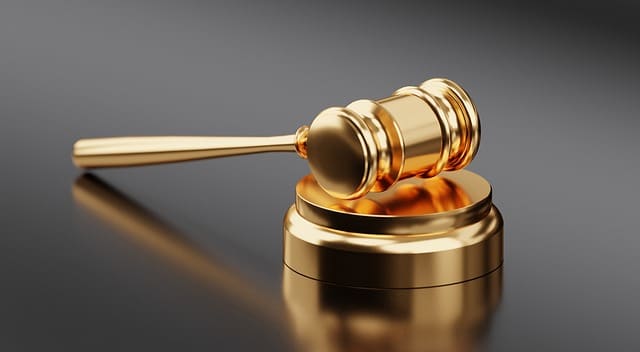Deferred Judgment on Background Check: What Does it Mean?
Michelle Wilson - December 17, 2023

A deferred judgment is the adjournment in contemplation of probation or dismissal before judgment. Often, this consideration is a type of plea deal that allows a defendant to avoid criminal conviction while holding a plea deal. A defendant would agree to plead “no contest” or guilty, while the court will enable them to complete probation or a diversion program instead of prison time.
Table of Contents
What is a Diversion Program?
Diversion is when a court allows a defendant to do something like community service, counseling, charitable donations, a letter of apology, or rehabilitation treatment instead of holding the criminal charge on file. After completing the alternative services, courts will either withdraw the charge (permanently dropping it from your name) or stay (where the charges will remain on hold for about a year).
What Does a Deferred Judgment Mean?
From a technical standpoint, anyone offered deferred judgments isn’t guilty of a crime. Individuals with a deferred judgment do not have convictions on their record and don’t have to admit to a criminal record. If filing out a document asking about criminal convictions, the individual can confidently say no.
Understanding the wording on the application is imperative, as a few employers will ask whether an applicant pleaded “guilty” or “no contest” to a criminal charge. In these situations, the applicant must report the deferred adjudication to remain honest on the application.
Does an Applicant Have to Disclose a Deferred Judgment to an Employer?
Disclosing a deferred judgment voluntarily is up to the individual in question. While some believe being forthcoming is a good idea, it’s a personal decision. A deferred judgment will always appear on a criminal background check. Ultimately, an employer will uncover any criminal charge the applicant was charged with and the plea deal entered at the time of judgment.
An individual choosing to disclose the deferred judgment allows the opportunity to explain what happened, remaining honest and transparent. It also allows an opportunity to provide relevant background details. Background information may include what happened, what you’re doing for probation, and a brief explanation of the criminal record.
What Appears on a Criminal Background Check?
A criminal background check reviews and investigates an individual’s criminal history. This screening will include a national, state, federal, and county search through various databases to report any felony and misdemeanor convictions. Additionally, a criminal background check often includes pending charges and deferred judgments. Different searches may reveal other criminal offenses, depending on the court records. Any juvenile or expunged records will not appear on the criminal background check. Regardless of the judgment or outcome, these records are automatically deleted from a person’s history.
What Details Show on Your Criminal History?
The details within a background report will vary according to the background check platform. Most companies will include felony and misdemeanor convictions, pending criminal cases, and infractions. Many states require background checks to limit criminal history to the last seven years. Anything older than this may not appear on the background report.
Other information may include the incarceration history, arrests pending prosecution, active warrants, and infractions. Many of the search results will relate directly to the geographic area searched. For example, state background checks only report criminal activity for the selected geographic area.
What are Fingerprint Background Checks?
A fingerprint background check uses a person’s fingerprints to uncover criminal history. Unlike the standard background screening, fingerprints are unique to each individual. The chance of pulling incorrect records with a fingerprint screening is minimal. The reason for fingerprint screening will vary, depending on the requested information. Typically, screening will use the FBI criminal records database. Alternatively, screening companies will use the AFIS database system.
What About Ban the Box States?
Several locations follow “ban the box” legislation, prohibiting an employer from asking about previous criminal activity on the job application. This legislation doesn’t prevent an employer from performing a background check; it simply delays the screening process until later. Ban the box states must allow any potential applicant to apply for a position without immediate rejection due to criminal history.
After an employer determines an applicant’s qualifications, they may conduct a background check. From there, any employer refusing an individual must connect the criminal record with job specifics. For example, someone applying for a finance position may receive a rejection after discovering fraud charges.
Will Misdemeanors and Arrests Appear on a Background Check?
A background check will typically show all misdemeanor criminal convictions, including pending cases. Misdemeanors aren’t considered as serious as felonies, as the sentencing is less severe. A deferred judgment will still appear under the criminal background check, along with any charges, pleas, and judgments.
Arrest records may appear on a background check. When an arrest doesn’t result in a criminal conviction, it may appear on the report. Likewise, when case filings occur within the last seven years, the results will appear on a screening. Both federal and state laws allow these details on a background report, although many employers will exclude the results to follow the Equal Employment Opportunity Commission (EEOC).
How to Confirm a Criminal Record
Anyone without a criminal history probably doesn’t have to worry about background screening. Individuals will know whether they were arrested, charged, or convicted of a crime within the last decade. Anyone with previous actions against them may want to evaluate what appears on a background check before seeking new employment.
Ordering a background check is the best option for anyone wanting to confirm their history. Find a reliable and trustworthy company when performing the screening process. Most companies will ask for personal information like name and date of birth to start the search. When you receive the report, look through the details carefully. Review the items for accuracy and any statute of limitations within your state. If there is something unrecognizable on the report, report it to the proper authorities immediately.
There is a slight chance of mistaken identity, particularly when someone has a common name. Remember, a deferred judgment isn’t the same as a criminal conviction, but it’s still an admission of guilt.
Conclusion
Deferred judgments will appear on a background report as they qualify as an admission of guilt. The criminal details relating to the deferred adjudication will also appear on the report. If an individual is applying for employment, it’s always better to explain the illegal activity on your file honestly and factually. Explain the arrest, charges, or probation to the employer to remain in control of the narrative. Knowing about something before the screening is always better than finding the results after the background check is finalized.












